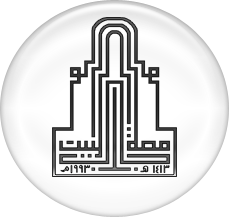| DC Field | Value | Language |
|---|
| dc.contributor.author | Salah Al-Raqad | - |
| dc.date.accessioned | 2018-03-07T10:35:28Z | - |
| dc.date.available | 2018-03-07T10:35:28Z | - |
| dc.date.issued | 2016-09-04 | - |
| dc.identifier.uri | http://hdl.handle.net/123456789/1472 | - |
| dc.description.abstract | الملخص
يتوقَّفُ هذا البحثُ بالدراسة والتحليل عند حقّ المرأة في الميراث الشرعي مقارنة بحقوقها في التشريعات الوطنية والقانون الدولي بهدف إبراز الفروق الجوهرية بين هذه النظم القانونية.
لقد أظهر المجتمع الدولي والتشريعات الداخلية اعترافاً صريحاً بحقوق المرأة، وأصبح لها مكتسبات ثابتة بعد معاناة تاريخية طويلة في معركة تحصيل الحقوق، إدراكاً من هذا المجتمع أن حصول المرأة على حقوقها يمنح الحياة كثيراً من ملامح الاستقرار، وتعبيراً عن تطوّر التشريعات التي كانت تهضم كثيراً من الحقوق الاجتماعية والاقتصادية والثقافية للمرأة، والمقررة لها ابتداءً في الشريعة الإسلامية.
تأسيساً على هذا المنظور، ينطلق البحث في معالجة قضية ميراث المرأة، ويتفحص المحتوى الشرعي والقانوني لهذا الحقّ الفطري.
الكلمات المفتاحية: حقوق، المرأة، قانون الدولي، الميراث، الاسلام، القرآن.
Abstract
This research studies and analyses women's legitimate inheritance rights in Islamic Sharia's compared with their rights in national legislations and international law in order to highlight the fundamental differences between the different legal regimes.
The international community and national legislations have shown an explicit recognition of women's rights, so women now have fixed gains after a long historical suffering in the battle of obtaining their rights, and this is due to this society awareness that when women obtain their rights bring about features of stability of life, and as a result of the development of legislations that used to suppress a lot their social ,economic, and cultural rights of women already exist in the Islamic law.
Based on this perspective, the research starts by addressing the issue of women's inheritance issue and examining the Islamicand legal contents of this inherent right.
Key words: Law, Women, Inheritance, International Law, Islamic, Quran.
Résumé
Cette recherche entame l’étude et l’analyse du droit de la femme concernant son héritage, la comparaison de ses droits dans la législation nationale, le droit islamique et le droit international en vue de mettre en évidence les disparités fondamentales entre ces différents régimes juridiques.
La communauté internationale et la législation nationale ont démontrés une reconnaissance explicite des droits de la femme, et cela est dû à cette conscience de la société que lorsque les femmes obtiennent leurs droits cela leurs rapportent des caractéristiques de vie plus stable, leurs droits ont été acquis après la concrétisation d'une bataille longue, et le résultat démontre l'évolution des législations qui ont privé la femme de beaucoup de ses droits sociaux, économiques et culturels, qui sont prévus initialement dans la loi islamique.
Basée sur cette perspective, la recherche aborde le traitement de l’affaire de l’héritage de la femme et examine le contenu légal et légitime de ce droit naturel.
• Mots clé : droit, femmes, héritage, droit international, islamique, Coran. | en_US |
| dc.subject | Key words: Law, Women, Inheritance, International Law, Islamic, Quran. | en_US |
| dc.subject | الكلمات المفتاحية: حقوق، المرأة، قانون الدولي، الميراث، الاسلام، القرآن. | en_US |
| dc.title | Le droit des femmes à l’héritage dans le droit international et islamique | en_US |
| dc.title.alternative | The women's inheritance rights in international Law and Islamique. | en_US |
| dc.type | Other | en_US |
| Appears in Collections: | المجلد(23)، العدد(4)، 2017م
|

